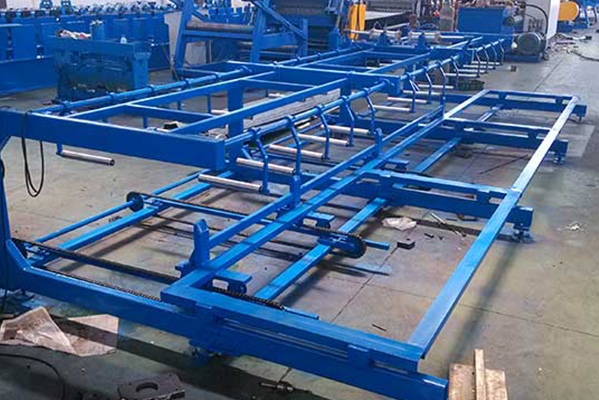Navigation Menu
Contact Us
- Email:
- info@wxavatar.com
- Address:
- Yurong Village, Yuqi Street, Huishan District, Wuxi, China.
Release Date:Apr 07, 2025 Visit:77 Source:Roll Forming Machine Factory
Auxiliary machinery refers to equipment that supports the primary operations of a system, ensuring its efficiency, safety, and functionality. These machines are essential in various industries, including marine, manufacturing, power generation, and HVAC systems. Below are some common examples of auxiliary machinery across different sectors.
1. Marine Auxiliary Machinery
In ships, auxiliary machinery supports propulsion, navigation, and onboard operations. Examples include:
Generators: Provide electrical power for lighting, communication, and other systems.
Pumps: Used for ballast, fuel transfer, cooling, and firefighting.
Air Compressors: Supply compressed air for engine start-up and control systems.
Refrigeration Units: Preserve food and maintain cargo temperature.
Boilers: Produce steam for heating and other processes.
2. Industrial and Manufacturing Auxiliary Machinery
Factories and production plants rely on auxiliary equipment to maintain smooth operations:
Cooling Towers: Regulate temperature in industrial processes.
Conveyors: Transport materials between production stages.
Compressors: Power pneumatic tools and machinery.
Dust Collectors: Maintain air quality by filtering particles.

3. Power Plant Auxiliary Machinery
Power stations use auxiliary systems to enhance efficiency and safety:
Feedwater Pumps: Supply water to boilers in thermal plants.
Condensers: Convert steam back into water for reuse.
Cooling Fans: Prevent overheating in transformers and generators.
Lubrication Systems: Ensure smooth operation of turbines and engines.
4. HVAC Auxiliary Machinery
Heating, ventilation, and air conditioning systems depend on auxiliary components such as:
Chillers: Cool water for air conditioning.
Fans and Blowers: Circulate air through ducts.
Humidifiers/Dehumidifiers: Control moisture levels.
Conclusion
Auxiliary machinery plays a crucial role in supporting primary systems across industries. Without these machines, many operations would be inefficient or even impossible. Understanding their functions helps in maintaining and optimizing industrial, marine, and power generation systems.